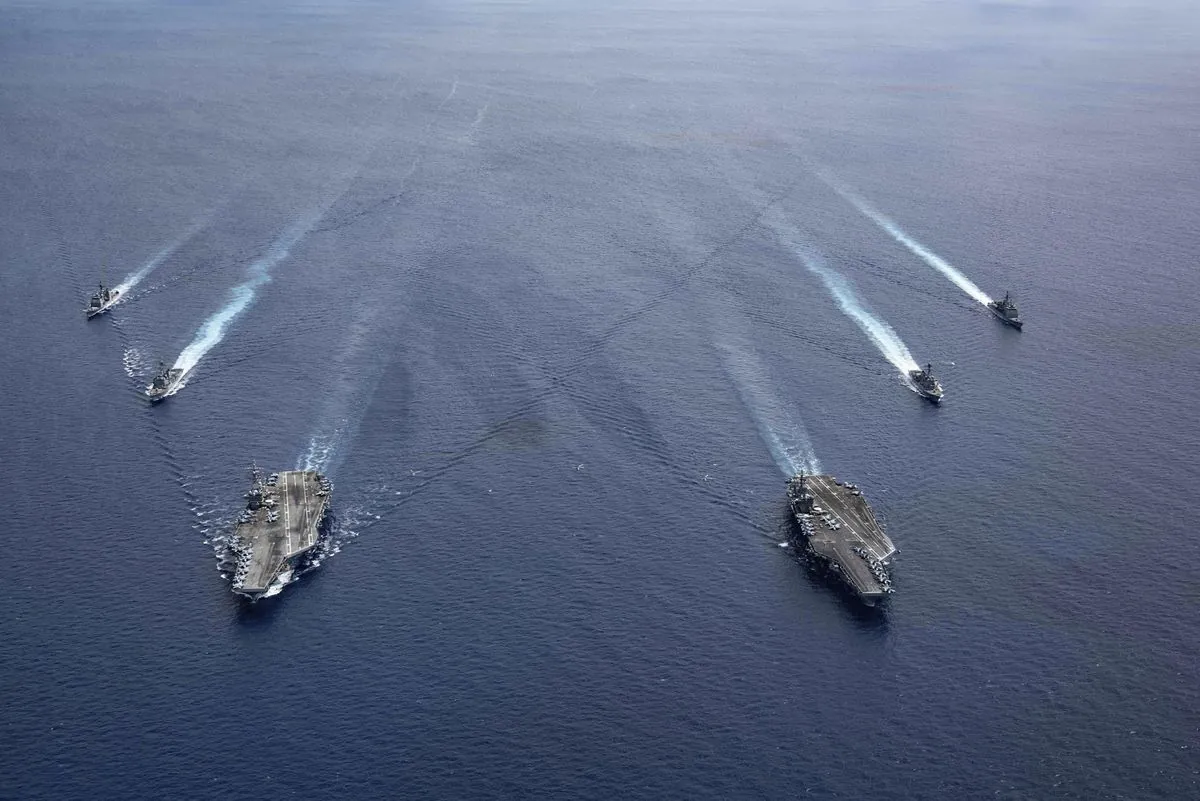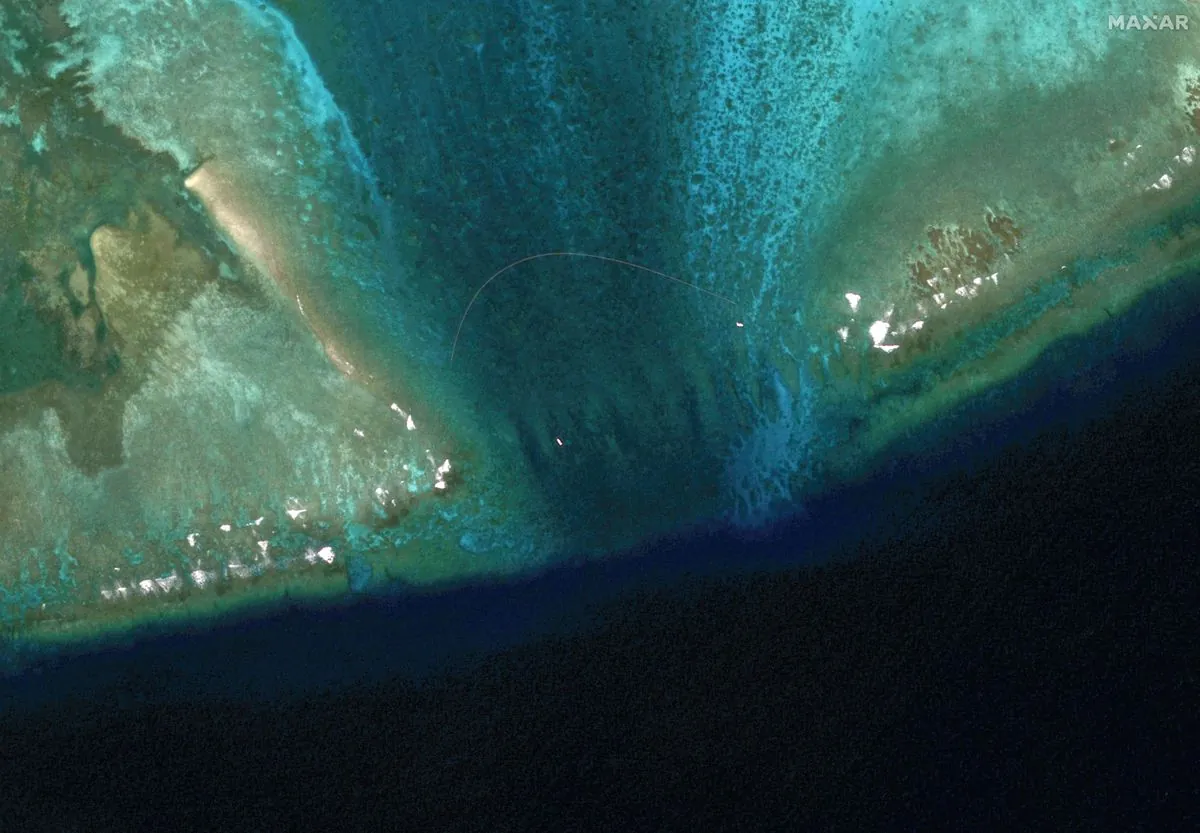Philippines Condemns Chinese Air Actions in Disputed South China Sea
Philippine President Marcos Jr denounces Chinese aircraft maneuvers near Scarborough Shoal as "illegal and reckless." The incident marks a new escalation in the ongoing territorial dispute in the South China Sea.

In a recent development, Ferdinand Marcos Jr, the President of the Philippines, has strongly criticized Chinese air force activities in the contested waters of the South China Sea. The incident, which occurred on August 8, 2024, near the Scarborough Shoal, has reignited tensions between the two nations.
The Philippine military reported that Chinese aircraft dropped flares in the path of a Philippine plane during a routine patrol. This action was deemed "dangerous and provocative" by Manila. In response, China's Southern Theatre Command accused the Philippines of "illegally intruding" into Chinese airspace, disrupting their training exercises.
Marcos Jr expressed concern over the potential for instability in the region's airspace, stating, "We have hardly started to calm the waters, and it is already worrying that there could be instability in our airspace." This marks the first reported incident involving Chinese aircraft since Marcos Jr assumed office in June 2022.
The Scarborough Shoal, located approximately 230 kilometers from the Philippines and 650 kilometers from China, has been a flashpoint in the South China Sea dispute. In 2012, China took control of the shoal following a standoff with the Philippines. The area is rich in marine life and has been a traditional fishing ground for centuries.

The South China Sea, covering about 3.5 million square kilometers, is a critical waterway for global commerce. Approximately 30% of global maritime trade passes through this region, which is estimated to contain 11 billion barrels of untapped oil and 190 trillion cubic feet of natural gas.
China's expansive claims in the South China Sea, encompassing nearly 90% of the area through its "nine-dash line" policy, have been a source of contention with neighboring countries. In 2016, the Permanent Court of Arbitration in The Hague ruled that China's claims had no basis under international law. However, Beijing has rejected this ruling.
The dispute extends beyond territorial claims to include fishing rights and potential energy resources. The area is home to over 3,000 species of fish, highlighting its ecological importance. International efforts to resolve the conflict continue, with the Association of Southeast Asian Nations (ASEAN) working on a Code of Conduct for the South China Sea.
As tensions persist, the international community watches closely. The United States has conducted "freedom of navigation" operations in the area, while satellite imagery has revealed China's construction of artificial islands and military installations in the disputed waters.
This recent incident underscores the ongoing challenges in maintaining stability in one of the world's most contested maritime regions. As diplomatic efforts continue, the need for peaceful resolution and adherence to international law remains paramount.
"We have hardly started to calm the waters, and it is already worrying that there could be instability in our airspace."


































